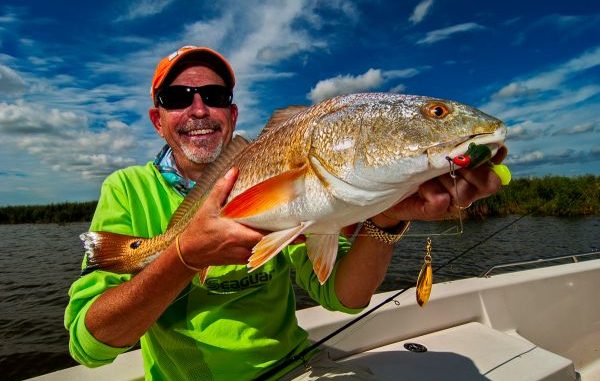
Adequate money, staff exists for new research, LDWF veteran says
Money generated by a proposed increase in the saltwater fishing license fee is unnecessary to fund research on saltwater fisheries as officials with the Louisiana Department of Wildlife and Fisheries have attested, a retired biologist familiar with the budget told Louisiana Sportsman today.
“The (LDWF) Office of Fisheries has adequate revenues to conduct the game fish research and recreational fisheries creel that are used as justification for the (proposed) license fee increase,” said the retiree, who spoke only on condition of anonymity.
The proposal, which is slated to be discussed on the floor of the Louisiana House of Representatives tomorrow, would hike the price of a resident saltwater fishing license from $5.50 to $13 — a 136-percent increase.
LDWF’s Randy Pausina has said the money would be used to collect more-precise recreational harvest data than ever.
“It would give use the ability to look at all the species we need to manage, including the federal species, but more importantly state species like trout, redfish, white trout, sheepshead and everything else,” Pausina said earlier this month. “It would give us the ability to get more confidence, more precision in the data and run better stock assessments.”
The Coastal Conservation Association Louisiana supports the license fee increase, despite the fact that LDWF officials have refused to share their analysis of existing research data since the BP oil spill.
And, the retired LDWF biologist said, personnel and funding already exist for such an expanded research program — if those resources were properly focused.
“… (T)he statement by Office of Fisheries personnel that additional research money was needed for marine sport fish is very misleading, because a very expensive marine research lab at Grand Isle was recently built using federal disaster funds and Rigs to Reefs money …,” he explained. “The lab has a large staff that the department manages, but current research priorities are targeted to offshore fish species that the federal government manages.”
The retiree also said expenses associated with a reorganization of the LDWF’s Office of Fisheries casts doubt on the need for new funding.
“We were initially told that there would be a new division using existing employees to increase cost efficiency by consolidating tasks,” he said. “However, the Office (of Fisheries) began an unprecedented spending spree that created large programs such as outreach, public relations (and the) new research lab, and sustainability (costs) and many new employees were hired.
“Consequently, funds were siphoned from the remnants of the old Marine Fisheries Division for other activities such as the historic fisheries independent sampling program ….”
Money associated with the BP oil spill exasperated that problem, he said.
“The BP sampling expansion, in my opinion, was used to obtain additional funds to fund the reorganization of the Office of Fisheries,” the retired biologist said. “(F)urthermore, it was not reduced to (previous) levels (when) the BP funds were no longer available or cut.
“Ample funds would be available to continue the new marine recreational fisheries creel (which I support) and also conduct research on marine sport fishes if the massive and very expensive fisheries reorganization had not taken place.”
The biologist also said he believes the proposed license fee increase might tied to the LDWF’s stated objective of building new saltwater fish hatcheries.
“I cannot verify but strongly suspect that another reason the department introduced the saltwater license fee increase was to fund future staffing needs for the soon-to-be-built saltwater fish hatcheries,” he said. “The department aggressively pushed that saltwater fish hatcheries be included for funding from the BP oil spill fines. These monies will fund the physical construction and administration for the hatcheries, but will not fund future operational costs.”
And, the experienced fisheries biologist said, no scientific reason exists for building saltwater fishing hatcheries — which is a controversial idea.
“There is no legitimate research validating saltwater fish hatcheries in the northern Gulf of Mexico,” he said. “Additionally, I cannot identify an experienced marine biologist from the academic or state side (who) would agree with a marine fish hatchery for stocking purposes.”
The retired biologist said his experience with the budget of the LDWF’s fisheries division points to the need for more transparency before rushing to provide additional money to the agency.
“The current budget of the Office of Fisheries should be subjected to detailed examination before any saltwater fishing license increases are approved,” he said.
Editor’s note: We encourage our readers to contact their legislators and voice their opinions. Click here to find and contact your representative; click here to find and contact your senator.


